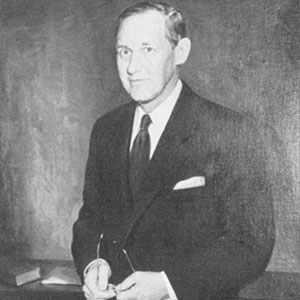Harry Hopkins was one of Franklin D. Roosevelt’s closest advisors. He was a chief architect the New Deal, spearheading the creation of the Works Progress Administration.
Early Life and Social Work
Harry Lloyd Hopkins was born in Sioux City, Iowa, in 1890. After graduating from Grinnell College, he went to work at a social settlement in a ghetto of New York City’s Lower East Side. In 1913, he went to work for the New York Association for Improving the Condition of the Poor (AICP) as “friendly visitor” and became superintendent of the Employment Bureau.
When World War I started, Hopkins moved to New Orleans with his wife and family to work for the Red Cross as director of Civilian Relief, Gulf Division. In 1922, Hopkins moved back to New York City to assume the role of general director of the New York Tuberculosis Association. One year later, he was elected president of the American Association of Social Workers (AASW) and played a key role in drafting its charter.
Hopkins first worked with Roosevelt when he was Governor of New York. FDR tapped Hopkins to run the Temporary Emergency Relief Administration (TERA), which was the country’s first state relief organization.
Role in Roosevelt Administration
After he was elected president, Roosevelt called on Hopkins to help him address the Great Depression on a national scale. Hopkins advocated for the creation of federal work programs to address the widespread unemployment impacting the country. He was responsible for several New Deal programs, including the Federal Emergency Relief Administration (FERA), the Civil Works Administration (CWA), and the Works Progress Administration (WPA). In addition to serving as administrator of the Federal Emergency Relief Administration, Hopkins served on Roosevelt’s Drought Committee, the Committee on Economic Security, the National Emergency Council, and the National Resources Planning Board and led the Federal Surplus Relief Corporation.
During his second term as president, FDR appointed Hopkins as Secretary of Commerce. He served from 1938 to 1940. After resigning his cabinet post due to health issues, Hopkins continued to serve as a key advisor to President Roosevelt. During World War II, Hopkins served as Roosevelt’s unofficial envoy to Winston Churchill and Joseph Stalin. He was also appointed to lead the lend-lease program to aid the Allies and served on the War Production Board and the Pacific War Council. Hopkins died in 1946 at the age of 55.








